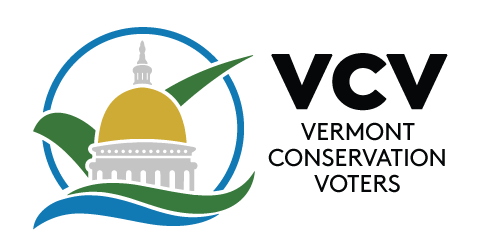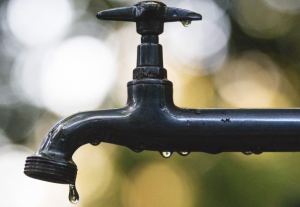Montpelier, VT –– Today, the Vermont House advanced legislation (S.25) on a strong voice vote to ban per- and polyfluorinated substances (PFAS) and other toxic chemicals from personal care products and menstrual products, and to ban PFAS from apparel, cookware, artificial turf, and children’s products. An earlier version of the bill passed the Vermont Senate unanimously in 2023, and the bill is supported by Vermont small businesses, public health experts, children’s advocates, and environmental groups. Following another vote tomorrow, the amended bill will return to the Senate for their consideration.
Lauren Hierl, Executive Director of Vermont Conservation Voters, noted: “Today, the Vermont House took important action to protect Vermonters’ health by advancing a bill to restrict the use of toxic chemicals like PFAS in a range of products we use every day, including cosmetics, cookware, clothing, and children’s products. Chemicals like PFAS are linked to cancer and other harms to human health, and this bill continues Vermont’s leadership role in acting to reduce Vermonters’ unnecessary exposure to dangerous chemicals.”
The chemicals banned by this bill are linked to numerous negative human health impacts. PFAS chemicals are linked to kidney and testicular cancers, high blood pressure, thyroid disease, and suppressed immune system function. Phthalates are a class of hormone-disrupting chemicals that have been found to threaten reproductive harm, lower fertility, increase the risk of testicular and prostate cancer, and add to “brain drain” symptoms like increased ADHD. Formaldehyde is a known carcinogen that is widely understood to cause allergic skin reactions and rashes.
Just today, the U.S. EPA finalized rules to set the first national drinking water standard for PFAS chemicals. The EPA estimates the rule will prevent nearly 10,000 deaths over decades and significantly reduce serious illnesses. They acknowledged that these chemicals can harm human health at extremely low levels.
Despite the harm they can cause, toxic chemicals continue to be used in a variety of products.
“Vermonters shouldn’t have to worry about carcinogens and forever chemicals every time they shop for essentials like clothing and personal care products. This is a complex and technical arena, and it isn’t fair to expect Vermonters to avoid toxic chemicals on their own. We as a state can and should tell companies selling these products that they need to be doing what is right for the health and safety of Vermonters,” said Representative Dane Whitman (D-Bennington), a member of the House Committee on Human Services.
Whitman added: “By addressing cosmetics and other personal care products, including menstrual products, textiles including clothing and other apparel, artificial turf, cookware, and products marketed to kids, we continue to close the gap on the products of highest concern for public health. S.25 is another big step in the right direction, and we have much more work to promote public health and prevent disease by controlling toxins in our homes and communities.”
From production to transportation, use, and disposal, toxic chemicals pose threats to communities throughout their lifecycle. As recently demonstrated by the spill of thousands of gallons of PFAS-laden leachate at Vermont’s landfill, throwing away toxic products can result in downstream contamination issues.
S.25 targets several different areas of consumer products that are major sources of exposure and environmental contamination:
-
- Bans a list of chemicals and chemical classes from personal care products and menstrual products
- Bans PFAS from:
- all textiles, including apparel
- artificial turf fields
- children’s products
- cookware
“It is Vermont’s responsibility to act swiftly to protect its people from these toxic products – especially when other states have already done so, which is the case for many of the products targeted by this bill,” said Marcie Gallagher, Environmental Advocate at the Vermont Public Interest Research Group. “When it comes to ‘forever chemicals,’ every exposure pathway matters.”
For each of these product categories, there are safer and cost-comparable alternatives already available. This bill aligns Vermont more closely with states like California, Minnesota, and Washington, which have already taken action to address toxic chemicals in these products. Further, many retailers are already starting to move away from the use of these toxic substances in the products they sell. This bill will protect Vermonters, help spur the market, and support other states in taking action to restrict harmful chemicals in consumer products.
Elena Mihaly, Vice President of Conservation Law Foundation Vermont, stated: “This marks an important step forward for Vermont’s continued efforts to protect our communities and our environment from daily exposure to PFAS and other poisonous chemicals. Stopping PFAS and other toxics upstream is the only long-term solution to widespread contamination, and we commend the House Committee on Human Services for pushing this critical legislation forward.”
###
Contacts:
Lauren Hierl, lhierl@vermontconservationvoters.org, 860-670-2629 (cell)
Marcie Gallagher, marcie@vpirg.org, 203-804-8403 (cell)

